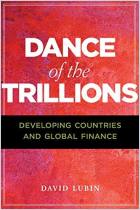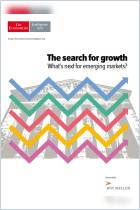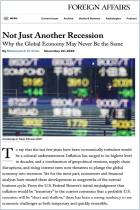
Recommendation
Developing economies are facing their worst debt burdens since 1982, according to economist Barry Eichengreen in this sobering commentary. Back then, creditors took years to put together an effective plan of action. But this time, Eichengreen says, the world cannot wait; debt moratoriums are at best a palliative, and any solution has at stake the welfare of billions of people. Economists and activists will find Eichengreen’s prognostications dire but his recommendations sound.
Summary
About the Author
Barry Eichengreen, a former senior policy adviser at the International Monetary Fund, is a professor of economics at the University of California, Berkeley.
By the same author
Report
Book
Book
Book
Learners who read this summary also read
Report
Report
Article




















Comment on this summary